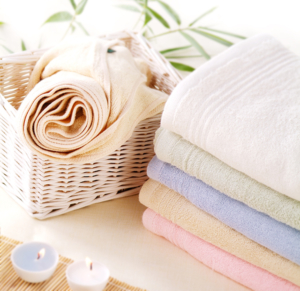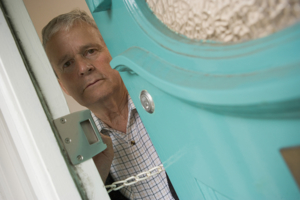Managing the Common Dementia Behavior of Rummaging
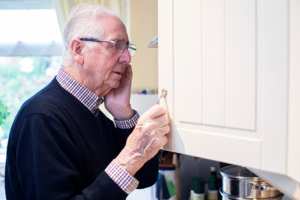
Rummaging through cupboards and closets is a common behavior for those with dementia or Alzheimer’s disease.
Looking through boxes, cupboards, and closets, pulling out odds and ends from drawers, and sorting repetitively through a number of items can be frustrating for individuals providing care for a member of the family with dementia, but in fact these actions are fulfilling an objective.
Rummaging can supply a degree of comfort for individuals with Alzheimer’s, along with the reassurance of identifying familiar objects and finding purpose and meaning.
The important thing then is not to deter rummaging, which may trigger agitation, but to better manage this common dementia behavior if it becomes disruptive. The following tips can help:
- Keep rummaging to a specific area. Assemble containers of items the senior seems especially drawn to, for example, keys, paperwork, a wallet, tools, gardening equipment, sewing implements, sports memorabilia, and so on. Whenever your senior loved one starts to rummage in other places, pull out one of the bins and guide his/her focus there.
- Establish an activity aimed at rummaging behaviors. Let the senior know you could really use his or her assistance with a particular activity that takes advantage of these behaviors, for example, folding towels or socks, sorting nuts/bolts in a toolbox, or placing paperwork into folders.
- Identify other stimulating activities to ease boredom. Rummaging may be the response to feelings of uneasiness, loneliness, or boredom. Try out assorted activities you can do together with the senior, including arts and crafts, puzzles, going for a walk, listening to music, etc.
- Keep valuables out of reach. Understanding that your loved one has the tendency to rummage, be certain that any essential documents, jewelry, keys, credit cards, etc. are all kept securely away. It is also a smart idea to tuck away the mail when it arrives, to be certain bills along with other items aren’t getting tossed or misplaced.
- Step up security precautions. Now is a very good time to evaluate how hazardous objects are stored in the house, such as sharp knives, cleaning products, even certain kinds of foods, such as raw meat that the individual may unintentionally mistake for another food product and ingest. Keep all items that could potentially cause the individual injury in secure places, ideally locked away.
Responsive Home Care can assist with the professional in-home care services that offer companionship and engagement in creative, enjoyable, and fulfilling activities for those with dementia that lead to fewer challenging behaviors. Call us at 954-486-6440 for additional information or to schedule an in-home assessment for home care in Fort Lauderdale and the surrounding areas.

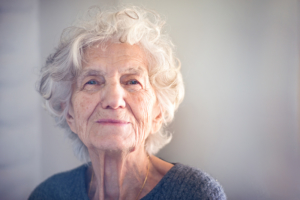
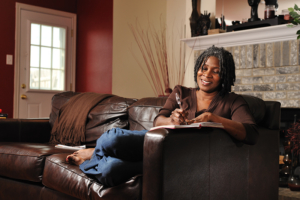 Taking care of a senior loved one with Alzheimer’s is a fluid, ever-evolving undertaking. One day may be calm and peaceful, with your parent enjoying activities, eating healthy meals, and sharing laughter with you; while the next day may be filled with agitation, anxiety, and sullenness. Exactly what will today bring?
Taking care of a senior loved one with Alzheimer’s is a fluid, ever-evolving undertaking. One day may be calm and peaceful, with your parent enjoying activities, eating healthy meals, and sharing laughter with you; while the next day may be filled with agitation, anxiety, and sullenness. Exactly what will today bring?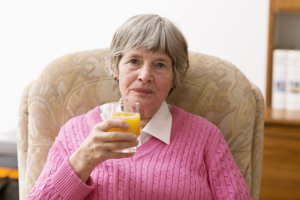
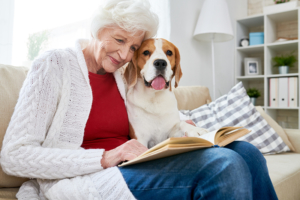 Agitation is among the more difficult effects of dementia, and may be exceedingly frustrating for family members to manage. The key is in taking steps to handle agitation before it’s felt and expressed by the senior loved one, which involves keeping track of what has triggered these feelings in the past, and establishing a home environment in which those stimulants are eliminated or minimized. The
Agitation is among the more difficult effects of dementia, and may be exceedingly frustrating for family members to manage. The key is in taking steps to handle agitation before it’s felt and expressed by the senior loved one, which involves keeping track of what has triggered these feelings in the past, and establishing a home environment in which those stimulants are eliminated or minimized. The 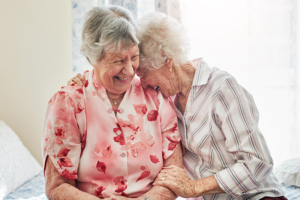
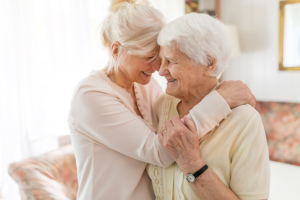

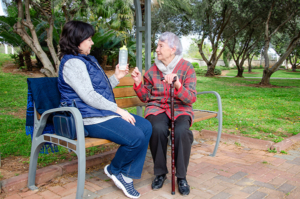 While there are certain commonalities, Alzheimer’s disease affects each individual differently. Our specially trained dementia caregivers know, for example, that although one individual may enjoy being outside, a different person could possibly be overwhelmed by so much sensory input and prefer a quieter indoor environment. One may enjoy a morning bath routine, while a measure of resourcefulness is necessary to help a different person maintain good hygiene.
While there are certain commonalities, Alzheimer’s disease affects each individual differently. Our specially trained dementia caregivers know, for example, that although one individual may enjoy being outside, a different person could possibly be overwhelmed by so much sensory input and prefer a quieter indoor environment. One may enjoy a morning bath routine, while a measure of resourcefulness is necessary to help a different person maintain good hygiene.